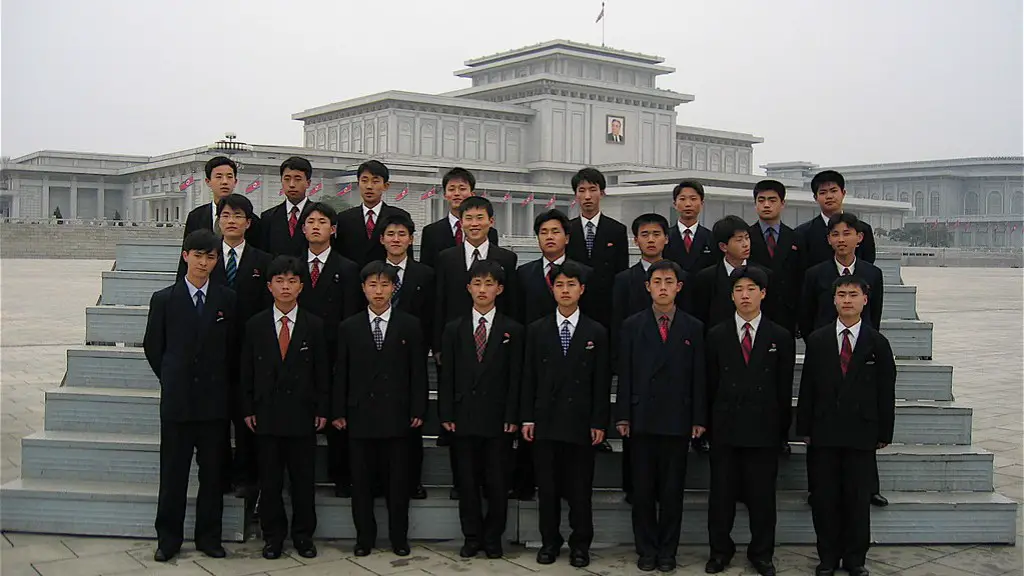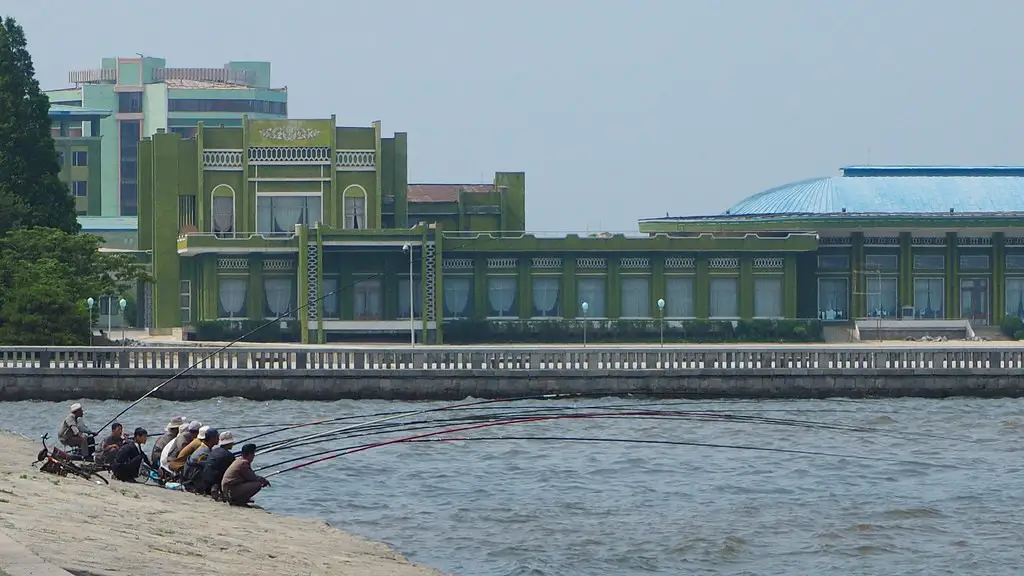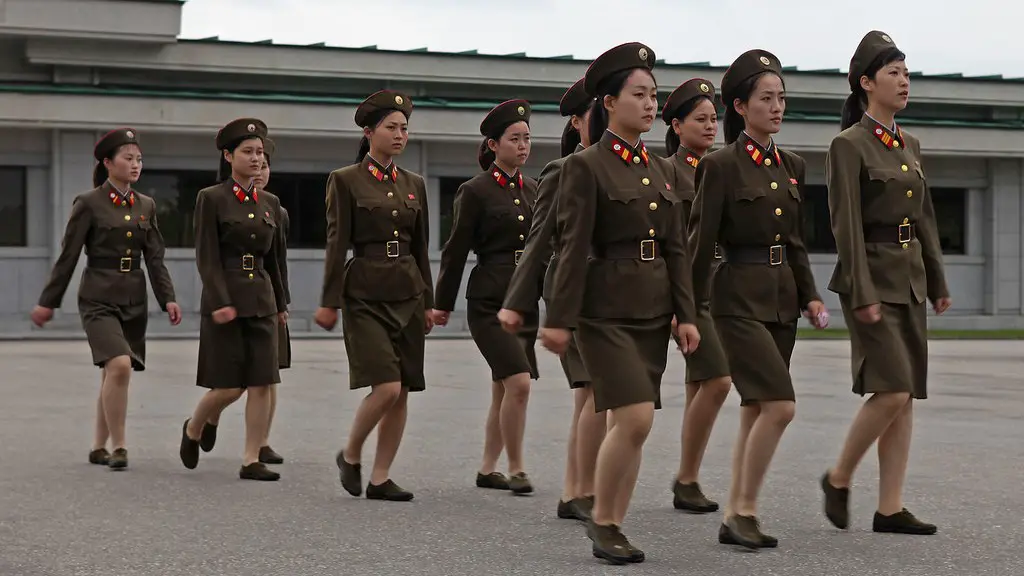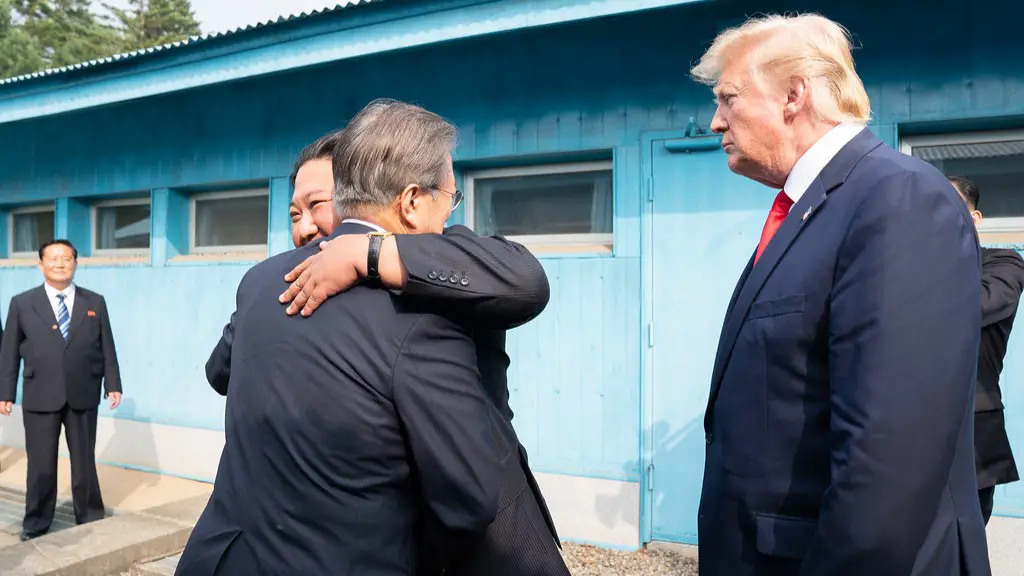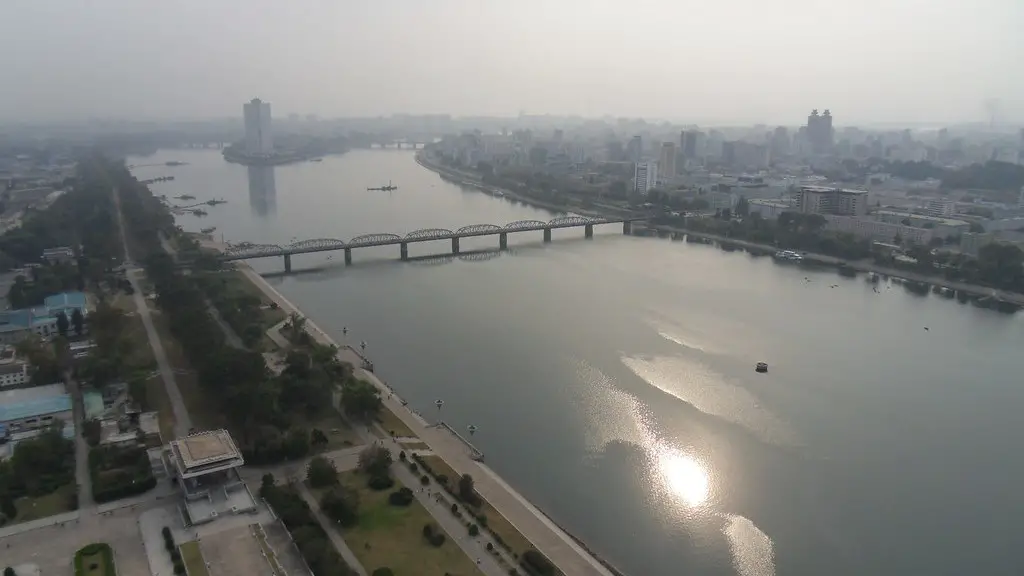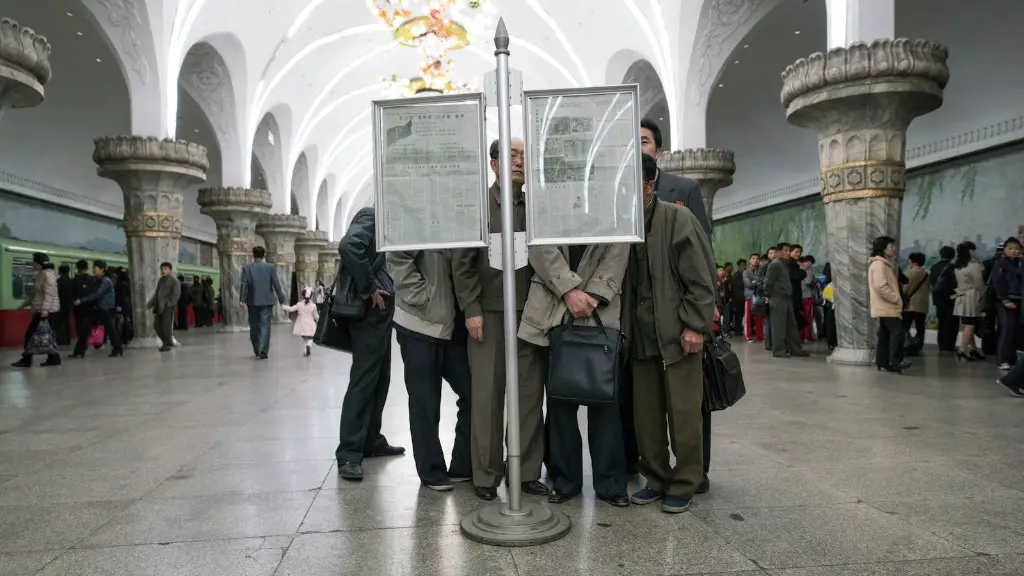North Korea is one of the world’s most politically and economically isolated countries. Since its commencement after the Korean War of the 1950s, North Korea has remained under authoritarian rule and its citizens have been denied basic civil and political rights. With great political and economic uncertainty, the country faces a number of challenges that make determining the best course of action a difficult task.
As the international community has become increasingly alarmed by the situation in North Korea, steps have been taken to try to persuade the country’s leaders to change course and open up their country to the outside world. The United Nations has imposed a number of sanctions on North Korea in an attempt to pressure the regime to end their nuclear program and improve their human rights record. These sanctions have not resulted in significant change in North Korea’s behavior, however, and have been criticized by experts for possibly exacerbating existing problems.
At the same time, there have been efforts from countries around the world to engage in diplomatic dialogue with North Korea. This has been met with varying levels of success. For example, recent diplomatic efforts have yielded the signing of a joint declaration between North and South Korea, which pledges to improve relations between the two countries.
In recent years, new challenges have arisen as North Korea has become more active on the world stage. North Korea has threatened other countries with its nuclear capability, leading to greater instability in the region. The United States and its allies have responded by sending military forces and supplies to the Korean Peninsula in an attempt to deter North Korean aggression.
The situation in North Korea is complex and the international community must consider a range of options. In the short term, diplomatic efforts should be continued in order to seek a peaceful resolution to the ongoing nuclear crisis. In addition, the United Nations should impose targeted sanctions on North Korea in an effort to pressure the regime to end its nuclear program and improve its human rights record.
In the long term, North Korea must be integrated into the global economy and allowed to open up to the outside world. This will require sustained diplomatic efforts as well as financial assistance from the international community. In addition, support for civil society and independent media within North Korea should be provided in an effort to strengthen the forces of openness and democratic reform.
Engagement with the International Community
Engagement with the international community is essential to resolving the issues in North Korea and ensuring peace and prosperity in the region. For instance, the United States and its allies should continue to engage in diplomatic dialogue with North Korea, focusing on areas of common interest. This could include diplomatic recognition, improved economic ties, and regional security cooperation. Additionally, third-party nations could be enlisted to facilitate negotiations between North Korea and other countries. Such negotiations could work to reduce existing tensions, build mutual trust, and bring about a lasting solution to the conflict in the region.
This type of engagement could also open up opportunities for investment and economic growth. Currently, North Korea is heavily dependent on neighboring countries for food and energy. Engaging with the international community would create new sources of capital and provide economic opportunities for North Koreans. Furthermore, this could lead to a more open and tolerant society, with the potential to reduce human rights abuses and bring about greater political freedoms.
Engagement with the international community is not without its challenges, however. There is the risk that diplomatic dialogue could be manipulated by the North Korean regime to buy time and avoid genuine reform. Additionally, there are concerns that too much economic and political integration could weaken the existing sanctions on North Korea and embolden its leaders. Therefore, any engagement should be carefully negotiated and closely monitored.
International Pressures
In order to persuade North Korea to end its nuclear program and improve its human rights record, the international community should maintain strong pressure on the regime. These pressures should come in the form of targeted sanctions, such as those imposed by the United Nations. Additionally, the United States and its allies should continue to enforce existing sanctions and ensure that North Korea does not evade them. This could be done through enhanced monitoring and enforcement, such as the use of naval ships to intercept ships carrying illicit goods.
Additionally, the United States and its European allies should put greater diplomatic pressure on China and Russia to support efforts to resolve the situation in North Korea. China and Russia have frequently acted as a buffer between North Korea and the international community, and they have the ability to exert tremendous influence over the regime. By using diplomatic and economic pressure, these countries can be persuaded to end their support for North Korea’s nuclear program and human rights abuses.
Finally, the United States should continue to provide military assistance to South Korea and other countries in the region. This could include sending troops for joint military exercises, providing military technology and training, and providing financial and logistical support. Such assistance would demonstrate the United States’ commitment to maintaining a secure and stable region and would serve to deter any potential aggression from North Korea.
International Cooperation
In order to achieve a lasting resolution to the situation in North Korea, it is essential that the international community work together. Several countries, including the United States, Japan, South Korea, and China, have already expressed their commitment to achieving a peaceful solution to the conflict in the region. It is important that these countries continue to collaborate in order to ensure that their respective efforts to resolve the situation in North Korea are unified and effective.
In particular, it is essential that the United States and China cooperate in order to ensure that North Korea’s nuclear program is dismantled and that it is prevented from future proliferation. By combining their economic and diplomatic leverage, the United States and China can ensure that North Korea does not continue to flout international law and that it takes meaningful steps towards improving its human rights record.
In addition, it is important that the international community rallies together in order to provide economic and political assistance to North Korea. Such assistance could help to alleviate poverty and promote economic development in the country, while also helping to reduce the political isolation of the North Korean regime. This could pave the way for greater political and economic freedoms and could help to create the conditions for lasting peace and stability in the Korean Peninsula.
Regional Cooperation
Greater regional cooperation is needed in order to address the challenges posed by North Korea. This should involve increased dialogue between North and South Korea, as well as dialogue with other countries in the region. It is essential that North Korea is included in regional initiatives, such as the Association of Southeast Asian Nations (ASEAN) and the East Asia Summit. This could provide a platform for greater regional cooperation, as well as an opportunity for North Korea to open up to the outside world.
In addition, the international community should seek to strengthen the conversation between North Korea and its neighbors. This could involve increasing aid and humanitarian assistance, expanding cultural exchanges, and engaging in dialogue on issues of mutual interest. This could help to reduce tensions between North Korea and its neighbors, while also creating the conditions for greater economic cooperation and increased trade.
Finally, regional cooperation should focus on finding a peaceful resolution to the conflict on the Korean Peninsula. This could involve negotiating a peace treaty between North and South Korea, in addition to other regional powers. Such a treaty could serve to reduce tensions in the region, pave the way for improved relations between North Korea and its neighbors, and provide a platform for greater regional cooperation and economic integration.
Humanitarian Aid
Humanitarian aid is essential in order to address the pressing needs of the people of North Korea. In particular, the international community should provide food, medicine, and other basic essentials to those in need. Such aid should be provided without political interference and with the goal of helping the people of North Korea, not propping up the regime.
Furthermore, the international community should provide economic assistance to North Korea in order to promote growth and development in the country. This could include providing funds for infrastructure projects and social programs, as well as investing in new businesses and industries. Such investment could create jobs and improve living standards, while also opening up the country to greater international trade and integration.
Finally, the international community should provide assistance for North Korean refugees and those seeking asylum. This could involve providing access to education and job training programs, in addition to providing funds for resettlement programs. Such assistance could improve the lives of those in need and could also help to reduce the existing tensions between North Korea and its neighbors.
